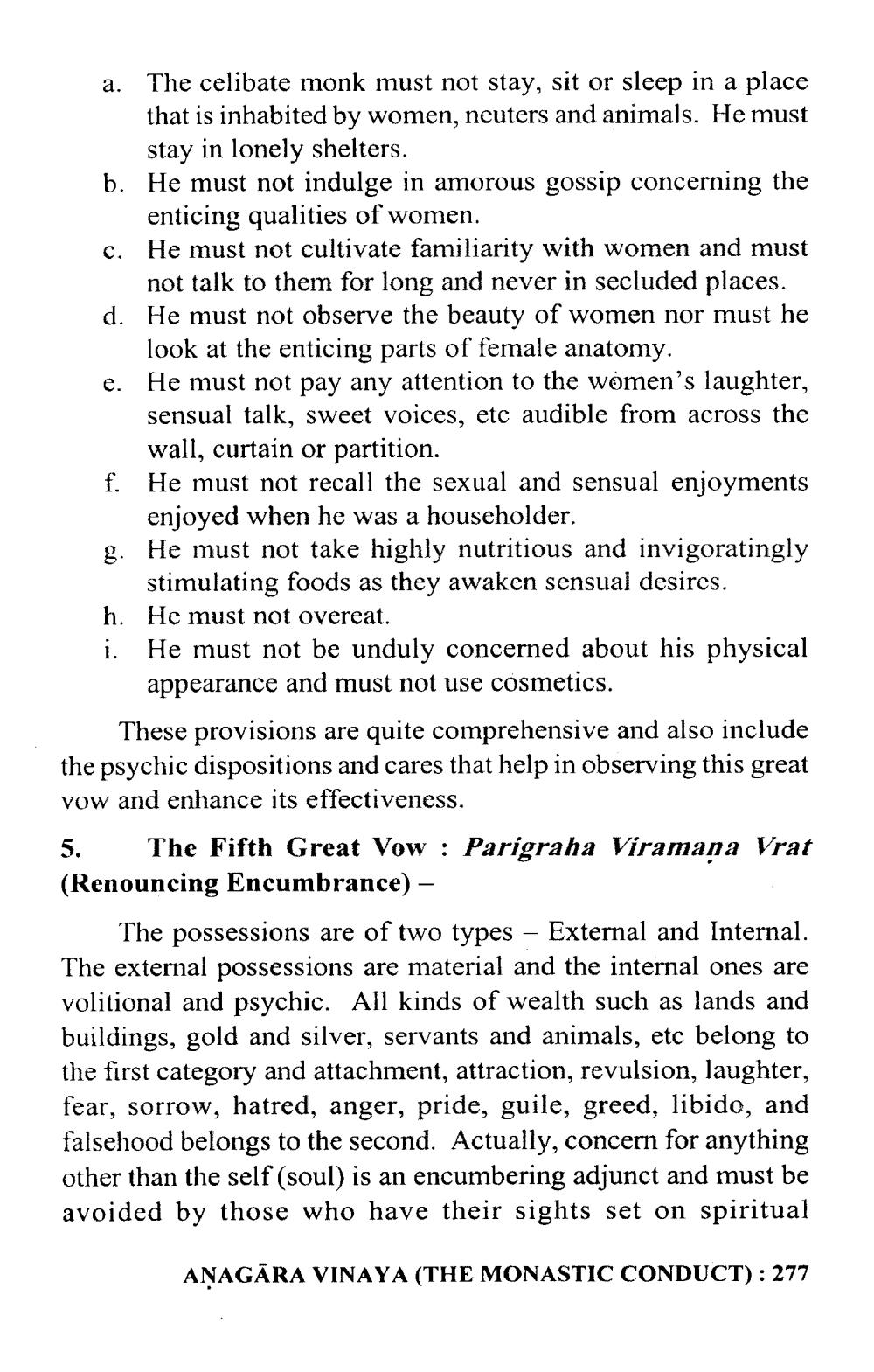________________
a. The celibate monk must not stay, sit or sleep in a place
that is inhabited by women, neuters and animals. He must
stay in lonely shelters. b. He must not indulge in amorous gossip concerning the
enticing qualities of women. c. He must not cultivate familiarity with women and must
not talk to them for long and never in secluded places. d. He must not observe the beauty of women nor must he
look at the enticing parts of female anatomy. e. He must not pay any attention to the women's laughter,
sensual talk, sweet voices, etc audible from across the
wall, curtain or partition. f. He must not recall the sexual and sensual enjoyments
enjoyed when he was a householder. g. He must not take highly nutritious and invigoratingly
stimulating foods as they awaken sensual desires. h. He must not overeat. i. He must not be unduly concerned about his physical
appearance and must not use cosmetics.
These provisions are quite comprehensive and also include the psychic dispositions and cares that help in observing this great vow and enhance its effectiveness. 5. The Fifth Great Vow : Parigraha Viramana Vrat (Renouncing Encumbrance) -
The possessions are of two types – External and Internal. The external possessions are material and the internal ones are volitional and psychic. All kinds of wealth such as lands and buildings, gold and silver, servants and animals, etc belong to the first category and attachment, attraction, revulsion, laughter, fear, sorrow, hatred, anger, pride, guile, greed, libido, and falsehood belongs to the second. Actually, concern for anything other than the self (soul) is an encumbering adjunct and must be avoided by those who have their sights set on spiritual
AŅAGĀRA VINAYA (THE MONASTIC CONDUCT): 277




